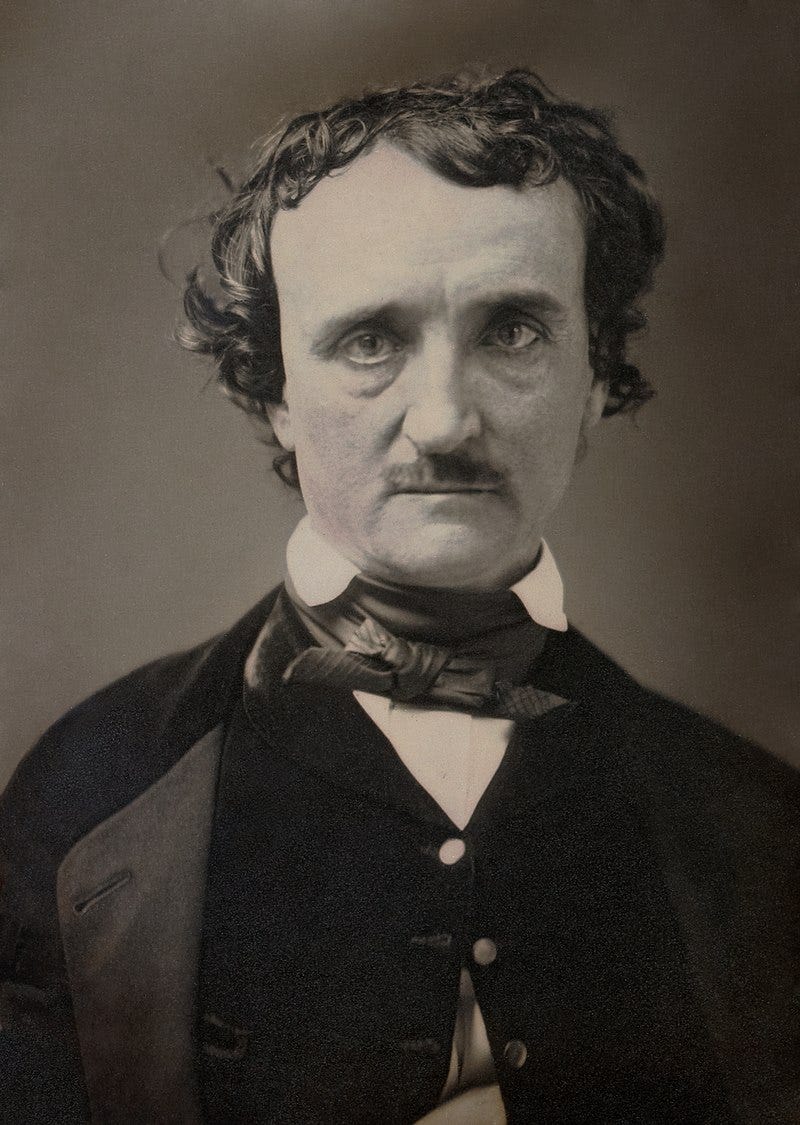Research a musical based on historical events, and you usually find startling and unexpected connections.
In the case of Congressman Davy, the new musical I have written with Dean Schlabowske (Waco Brothers, Deano & Jo), one of those connections was between Davy Crockett and Edgar Allan Poe. (Book a seat at our free DC reading on November 1, 2024 here.)
I decided to weave Poe into the musical — and wrote lyrics for two duets that he shares with pioneering DC journalist Anne Royall. (You can hear a preview of these two songs — “Poison Pens” — as performed by Deano & Jo on our Bandcamp site.)
While it is unlikely that the two men actually met, Poe did publish a review of Crockett’s second book — An Account of Colonel Crockett's Tour: North and Down East in the Year 1834 — in the April 1835 issue of the Southern Literary Messenger:
We see no reason why Col. Crockett should not be permitted to expose himself if he pleases, and to be as much laughed at as he thinks proper — but works of this kind have had their day, and have fortunately lost their attractions. We think this work especially censurable for the frequent vulgarity of its language.
At this moment, Poe was 26, and he had been having a rocky time making a living by his pen. Indeed, he was a relatively-new hire at the Messenger — which had started publishing only the year before.
The persistent anti-intellectual strain in American life is one strand of Congressman Davy, so I decided to place Poe into close proximity with Royall in the musical. It was a promising match that eventually paid off: an up-and-coming young writer with an established and controversial proprietor of her own newspaper.
“Poison Pens” is Poe and Royall’s opportunity to describe the malodorous media cacophony in which they had to work in the 1830s. (Contemporary resonances may not be accidental):
Nobody ever wants their noggin taxed.
Amusements. Diversions.
Free of facts.
And if you ever find you're getting stuck?
Raise some ruckus
Fling some muck

Knowing that Poe actually reviewed a Crockett book when it appeared opened up another fascinating window into the topsy-turvy landscape of Washington City in the 1830s. The political climate was decidedly populist — and favored boisterous and less-refined voices from the country’s emerging frontier. Yet the nation’s capital possessed grand aspirations and sought to emulate the models bequeathed to the popular culture from the classical world. Knowledge was, in some sense, still a very powerful currency.
Congressman Davy has been an opportunity to explore essential American contradictions which dominated that moment — and still resonate powerfully today.
The November 1, 2024 staged reading of Congressman Davy at the True Reformer Building on U Street NW is free, but reservations are required for admission. Book a place here.





Poe was a notoriously tough critic. He was opposed to "puffing" -- that is, banal positive reviews. I'm not surprised Poe reviewed Crockett's book, and I'm betting he panned it.